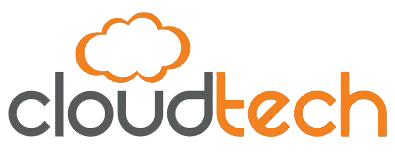Procurement is a complex process that tests the persuasive ability of any professional to arrive at a certain agreement with suppliers. It becomes burdensome when there are deadlines to meet, there is a sudden increase in requirements, or transportation is disrupted in case of unforeseen incidents.
The pandemic, in particular, has hurt businesses because of the sudden change in the business environment, border control restrictions, and quarantine protocols that needed to be observed by both sides. For example, the flow of goods and services was affected for several days, if not for weeks or months. Even today, the situation is far from what it used to be.
Globally, shipments have plummeted at the start of the pandemic because of the adjustments that needed to be made before transport operations could restart. This resulted in a drop of supplies, inventories, and production.
A shortage in supplies could quickly translate into higher prices, and it could damage the relationship between companies and suppliers. Despite the good connection they have established over the years, the company-supplier relationship may be compromised in case of fortuitous events, especially if they have not adopted any formal relational contract.
Manual procurement, based on word of honor, used to be enough to maintain business relationships. However, competition amid the globalization of markets, together with the transformation of businesses, has made it more difficult to rely on the old-fashioned procurement process. It is important to note that what drive businesses are financial returns.
It is therefore equally important to have formal contracts that meet both parties’ expectations, while allowing flexibility in cases of fortuitous events such as the global health crisis. Under such contracts, both parties commit to similar goals and objectives and provide options on how they can resolve issues as they arise.
Transparency is the key to enforcing these procurement contracts and helps in confidence-building between the two parties. To make operations sustainable, companies need to procure goods and services at competitive costs. Making these costs transparent to both sides and understanding the factors that can result in sudden fluctuation will enable them to agree on long-term arrangements which will be good for their businesses.
Digital solutions are now available to help companies reduce costs by signing pre-negotiated contracts with suppliers. These automated solutions provide real-time information not only about vendor performance but also about the company’s emerging requirements based on industry or economic trends.
For example, an automated solution helps a company manage its vendors, facilitate requests for quotation, establish contracts and set procurement policies. It matches purchase orders, item receipts and vendor bills with configurable workflows.
It also improves visibility by providing real-time information on company expenditures and vendor performance.
Powerful solutions can help companies manage their vendor relations effectively, by providing metrics that can be tracked and analyzed. This will enable effective collaboration on current and future projects. It also allows flexibility to respond to sudden changes in demand in case of unforeseen circumstances. It has centralized vendor management, free collaboration portals, vendor scorecard and vendor management.
The pandemic has upended many of our habits, routines and processes. Relationships, however, are constant – it is only the manner in which we build and sustain them, in regular times and in pandemic-ridden ones, that changes. Cloud-based systems do much to help companies nurture their ties with their suppliers and clients, so they could be in constant touch and keep the supply and distribution chains moving at all times.
